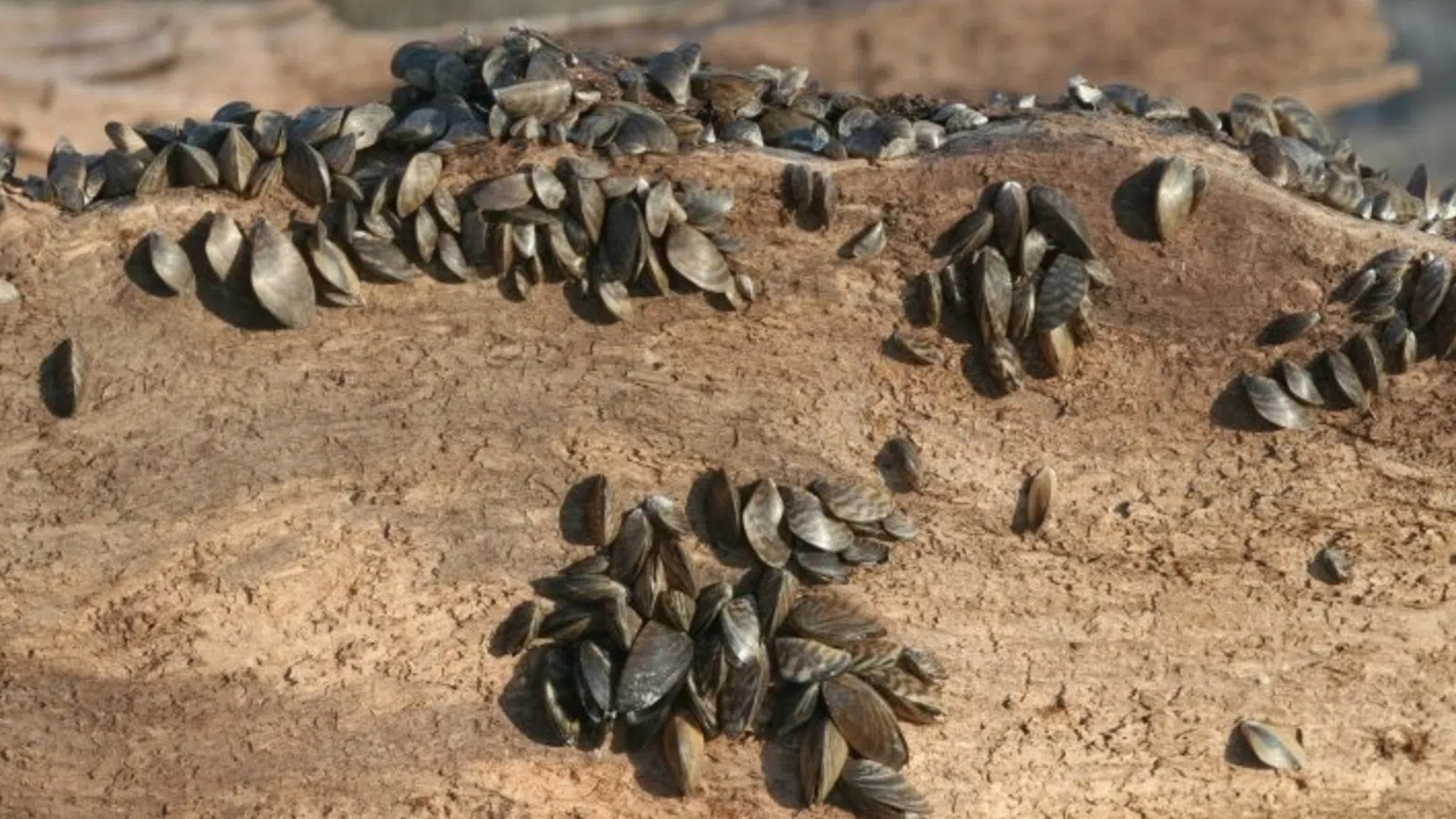Zebra mussels, an invasive species, have been found in New Brunswick’s Saint John River, raising concerns among scientists and officials about their potential ecological and economic effects.
Known for their disruptive nature, these mussels can significantly damage freshwater ecosystems and infrastructure.
Sarah Cusack, project coordinator with the New Brunswick Invasive Species Council, explained that zebra mussels cause “biofouling,” which means they can smother surfaces and systems by attaching themselves in large numbers.
Cusack said the impact of these mussels goes well beyond just biofouling. They can create dense colonies, with individuals as small as 4 centimetres wide clinging to surfaces like water pipes and docks.
She explained in Ontario, populations have reached as high as 700,000 mussels per square meter.
This kind of infestation presents serious challenges for water infrastructure, leading to higher maintenance costs and disrupting water flow.
Environmental risks and ecosystem threats
Zebra mussels also threaten native species by outcompeting them for essential nutrients, which disrupts the food chain.
“They smother our native mussels and rapidly consume nutrients, which can lead to die-offs of plants, fish, and other aquatic organisms that depend on these nutrients,” Cusack said.
As zebra mussels filter out nutrients, their waste and decomposing bodies contribute organic material to the bottom of the water.
This buildup can lead to harmful algae blooms, often made up of cyanobacteria, which Cusack referred to as “green sludge,” impacting water quality.
“We’ve seen this in places like Ontario and the Great Lakes,” she said.
“High densities of mussels remove nutrients, causing the die-off of plants and fish, and as they decompose, the chances of experiencing green sludge increase.”
Economic and recreational concerns
The presence of zebra mussels also poses problems for recreational water use and tourism.
Cusack elaborated that the sharp shells of dead mussels can wash up on beaches, creating hazards for shorelines.
“You could easily cut your foot if you’re not wearing shoes,” Cusack said.
“It reduces the peaceful, enjoyable beach experience.”
She added that zebra mussels clog water intake pipes and stick to infrastructure, increasing costs for municipalities and industries.
“Management becomes a constant struggle, requiring the removal of tens of thousands of mussels from pipes that impact our water supplies,” Cusack said.
Call for action and prevention
Zebra mussels were first detected in New Brunswick in 2023, with a live specimen found in Mactaquac in December 2024.
In response, over 70 experts and officials are meeting on Thursday to discuss strategies for controlling their spread.
Cusack highlighted that prevention is the best way to combat the spread of zebra mussels.
She said these mussels often rely on human activities, such as moving boats, to disperse to new areas.
The Council promotes the “Clean, Drain, Dry” practice—cleaning boats, draining standing water and drying equipment before using it in another body of water.
“Prevention is something everyone can do to make a difference,” Cusack said.
She’s encouraging the public to report any sightings through the New Brunswick Invasive Species Council.
“This meeting is a positive step forward,” Cusack said.
“It’s about working together to protect our freshwater systems and prevent the kind of damage we’ve seen in other regions.”






